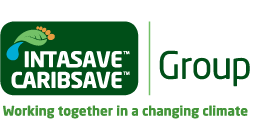The Solar Nano-Grid Consultation Workshop, Kenya
May 2014, Nairobi, the first international workshop was held to bring together the three project partners, associates and guest speakers for the Solar-Nano-Grid (SONG) project, funded by the UK's Engineering and Physical Sciences Research Council. It focused on identifying previous research and existing experience in the use of solar/PV in low-income countries of the global south, doing site visits to similar projects in Kenya to consider their development and practices, reviewing and identifying suitable project methodologies and constructing an implementation framework for the SONG project for the next 12 months.The aims of the SONG project are to:
- Investigate the impacts of solar home system installations in low-income communities in Kenya and Bangladesh,
- Work with these communities to map energy use patterns as they impact their daily reality,
- Identify the different potential demands for energy through the needs and activities of people and households,
- Evaluate solar-nano-grids (insert link - what is a solar-nano-grid) to improve energy access for income-generating activities, where it seems that solar home systems (SHS) by themselves are less able to contribute,
- Put the research into practice by setting up solar-nano-grids in selected low-income communities in both countries,
- Widely disseminate and distribute the results, to aid learning and replication.
SONG is both an inter-disciplinary project, bringing together social scientists and engineers and as well, includes participation by NGOs and civil society in both countries. Further, at the heart of the project is the involvement of the people and communities themselves.
We're pleased to write that the workshop achieved a number of results:
- Two visits to existing community solar projects in Kenya and a discussion with those involved at both Olosho-Oibor and Kitonyoni communities. These visits were invaluable in feeding into the technical, social and economic implementation discussions of SONG.
- The paper and work package activities were reviewed in terms of overall progress.
- Project partners were engaged in discussions and exercises to further familiarise themselves with relevant methodologies, particularly participatory impact pathways analysis, community based vulnerability assessments and vision-exercising, all relevant to Kenya and Bangladesh.
- The social economy was outlined in which the project will take place, from the international level down to community and household level, as well as some complimentary energy sector mapping.
- A variety of energy sector actors from Kenya (policy, NGO and private sector) participated to enhance understanding of the solar environment and discuss their experiences across an array of projects.
- Participants reviewed the next steps of the project, including the plan for wider community mapping and a comprehensive overview of community consultation.
The mix of participants and the involvement of all partners as well as associates from the UK, brought together a wealth of expertise and experience unusual in such forums. This rich experience will serve us well, as we move the project forward to identifying the communities with whom we will partner to undertake the solar-nano-grid installations and research over the coming months.
